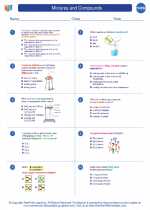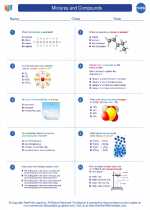Meteorology
Meteorology is the scientific study of the atmosphere and its phenomena, including weather and climate. It is an interdisciplinary field that combines elements of physics, chemistry, and fluid dynamics to understand and predict atmospheric processes. Meteorologists use various tools and techniques to observe, measure, and analyze atmospheric conditions in order to forecast weather patterns and understand long-term climate trends.
Key Concepts
- Atmospheric Composition: Understanding the composition of the atmosphere, including the abundance of gases such as nitrogen, oxygen, and trace gases, and their role in governing weather and climate.
- Weather Systems: Studying the formation and behavior of weather systems such as fronts, pressure systems, and storms, and their impact on local and global weather patterns.
- Climate Patterns: Analyzing long-term climate data to identify patterns and trends, including factors such as temperature, precipitation, and climate variability.
- Atmospheric Dynamics: Exploring the physical laws and principles that govern the motion and behavior of the atmosphere, including concepts such as air pressure, wind patterns, and atmospheric circulation.
- Weather Forecasting: Utilizing observational data, computer models, and statistical methods to make short-term weather predictions and improve the accuracy of weather forecasts.
- Climate Change: Investigating the impact of human activities on the Earth's climate, including the role of greenhouse gases, global warming, and the potential consequences for the environment and society.
Study Guide
When studying meteorology, it is important to grasp the fundamental principles of atmospheric science and develop a strong foundation in the following areas:
- Understand the properties and behavior of atmospheric gases, including their role in regulating temperature, pressure, and weather patterns.
- Learn to interpret weather maps, satellite imagery, and radar data to identify and analyze different weather systems and their associated features.
- Explore the processes of cloud formation, precipitation, and severe weather phenomena such as thunderstorms, tornadoes, and hurricanes.
- Gain knowledge of the factors that influence climate variability, including oceanic currents, solar radiation, and natural climate cycles.
- Study the principles of atmospheric thermodynamics, including concepts such as adiabatic processes, stability, and the formation of clouds and precipitation.
- Practice using weather instruments and observing the local environment to make connections between atmospheric conditions and weather events.
- Engage with current research and developments in meteorology, including advancements in weather prediction models, climate simulations, and the study of extreme weather events.
By mastering these key concepts and skills, students can develop a deep understanding of meteorology and its significance in understanding the Earth's atmosphere and the impacts on our daily lives.
[Meteorology] Related Worksheets and Study Guides:
.◂Chemistry Worksheets and Study Guides High School. Mixtures and Compounds

 Worksheet/Answer key
Worksheet/Answer key
 Worksheet/Answer key
Worksheet/Answer key
